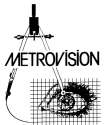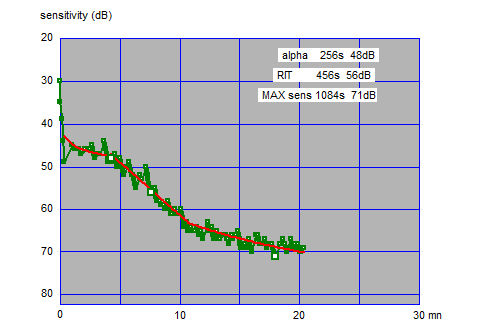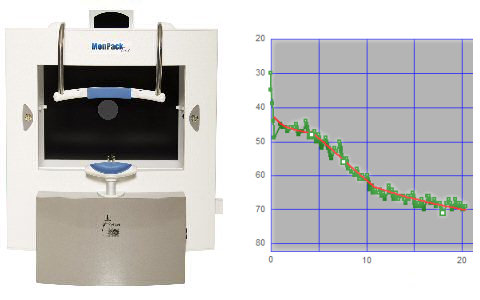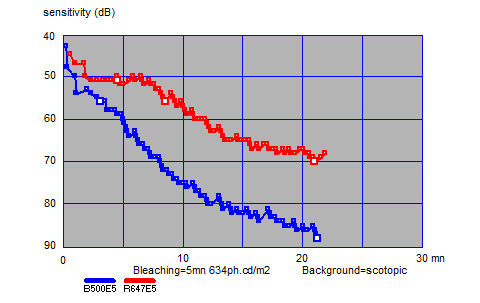Dark adaptometry and FST test
- Home
- Visual function tests
- Vision psychophysics
- Dark adaptometry
Introduction
The examination of dark adaptation evaluates the recovery of light sensitivity after exposure to bright light.
It presents several clinical applications:
ŌĆó the functional evaluation of processes that affect directly the eye (retinitis pigmentosa, ..)
Responses can often be obtained with the psychophysical exam of dark adaptation
whereas the electroretinogram is extinct,
ŌĆó when a metabolic process is suspected (vitamin-A deficiency),
ŌĆó the functional evaluation of subjects working under low luminance conditions,
ŌĆó the evaluation of subjects who complain of visual difficulties at night.
The FST test (Full Field Stimulus threshold) measures the threshold of light sensitivity with full field stimulations
after dark adaptation.
It is used during clinical research studies, for example for retinitis pigmentosa. The use of full field stimulations allows measurements
even when fixation is not stable (nystagmus).
Methodology
The program for dark adaptometry starts with a light adaptation phase of typically 5 minutes duration followed by a dark phase.
Tests for false positives are included to evaluate the patient's reliability.
The curve here-by shows a typical result. The ordinate scale is given in dB with a 0 dB level set at 318 cd/m2
(reference of the Goldmann perimeter).
The program for the FST test begins right after dark adaptation and measures the sensitivity threshold to full field light stimulations with a staircase strategy starting from the lowest luminance level.
Specifications
This program is available on several models of the Vision Monitor:
- MonCvONE for clinical research. It includes the FST tests (full field stimulus threshold)
as well as tests with several wavelenths and several locations,
- MonPackONE, for standard clinical exams and
- MonCv3, for screening exams.
For detailed specification,refer to the PDF brochure.



